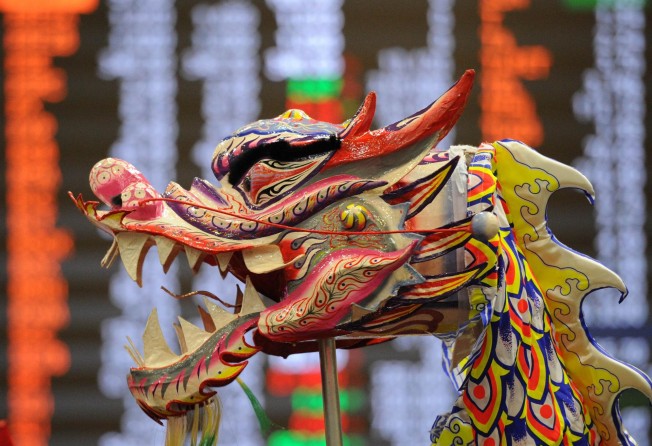China's IPO rush creates crop of newly minted billionaires
Following 14-month IPO standstill that ended last year, more than 20 stocks started trading in January, creating two dozen new billionaires

China's world-best stock market rally made January the busiest month for IPOs in a year. It also created a bundle of new billionaires.
In the first six weeks of 2015, the world's second-biggest economy hatched about two dozen billionaires, many of whom are riding initial public offerings that investors are driving to their daily price-trading limits - a frenzy that harkens back to the IPO market of the late 1990s. Among the high-fliers are an airline, a video-game developer and a drug-store chain.
"IPOs have become very hot investment products in China," said Ronald Wan, chief China adviser at Hong Kong-based Asian Capital Holdings, a Hong Kong-based corporate advisory firm. "So all the controlling IPO shareholders become very rich afterwards - they become billionaires."
After a 14-month standstill beginning in October 2012, IPOs resumed in China last year. More than 20 new stocks started trading in January, the most since the same month a year earlier. The offerings follow a 49 per cent rise in the Shanghai Composite Index, the world's best-performing index in 2014.
The Shenzhen Composite Index, the smaller of China's two stock exchanges, is up 12 per cent in US dollar terms this year, Asia's highest returns and trailing just Russia and Saudi Arabia globally.
The Shenzhen rally has produced at least three new billionaires: Xiao Fen, whose electronics company, Shenzhen Fenda Technology Co, invested in a maker of Google Glass-like products; Ruan Hongxian, the chairman of Yunnan Hongxiang Yixintang Pharmaceutical Co, China's third-biggest publicly traded drug-store chain; and Zhou Wei, chairman of medical software developer Shanghai Kingstar Winning Software Co.
In Shanghai, where gains in the first day of trading are capped at 44 per cent and subsequent daily increases are limited to 10 per cent, Wang Zhenghua, the 70-year-old chairman of Spring Airlines Co, landed a US$1.3 billion fortune after the stock surged by the daily limit in the nine days after it trading debut.
No company produced more billionaires than the finance affiliate of Alibaba Group Holding. Zhejiang Ant Small & Micro Financial Services Group Co, the parent of electronic payment operator Alipay, doubled its valuation to about US$50 billion last month ahead of a private placement and an anticipated IPO, according to people familiar with the matter.
Some investors expect further gains in Chinese stocks. At 15.5 times earnings, the Shanghai Composite trades at the lowest multiple after Hong Kong among the world's 10 biggest stock markets. The MSCI China Index, which tracks Chinese companies traded in Hong Kong, is valued at 10 times earnings. The central bank's move to cut the amount of cash lenders must set aside as reserves may also boost stocks.
"It's cheap and I think earnings should be OK now that you have lower input costs and lower company fundings because of the lower interest rates and also the lower required reserve," said Daphne Roth, the Singapore-based head of Asian equity research at ABN Amro Private Banking, which oversees about $220 billion. "That'll pump in some liquidity back into the system."
Others are less sanguine. Andy Xie, a former World Bank economist, said the Chinese rally may be short-lived. He said the surge in IPOs in China could "overwhelm" demand from investors.
"There are thousands of companies that private equity firms have invested in that are ready to come into the market," Xie said. "It's not like a little bit of oversupply. There's a tsunami of IPOs coming."
There are also risks betting on IPOs and the growth outlook for these new companies.
"People tend to believe that new stocks should perform better than the existing stocks, but this is not necessarily true," said Jing Ulrich, vice chairman of Asia Pacific at JPMorgan Chase & Co. "Smaller companies may grow faster, but they may also be riskier and more volatile due to their shorter track record and lower coverage by the brokerage community."
Even when the IPO frenzy eases, investors will focus on fundamentals, such as the industry and economic outlook, said Shrikant Bhat, head of wealth management at Citigroup in Singapore.
"If the fundamental growth is there and China is still growing at 6.5 per cent to 7 per cent, the equity market triggers the effect of growth," he said.
At least one billionaire said he's more focused on his business than his net worth.
"Being on a rich list only reflects paper wealth," Fenda Technology founder Xiao said through his spokesman Zhou Guiqing.